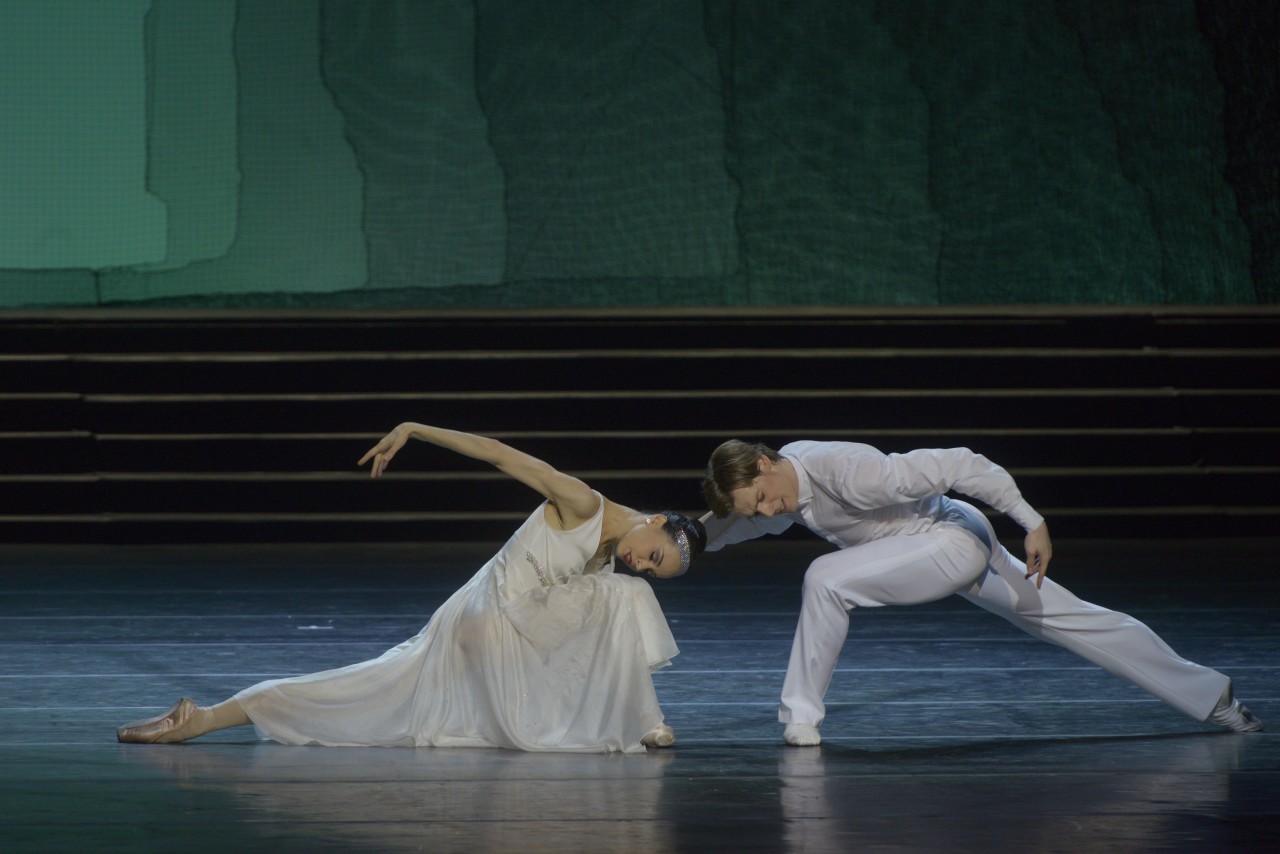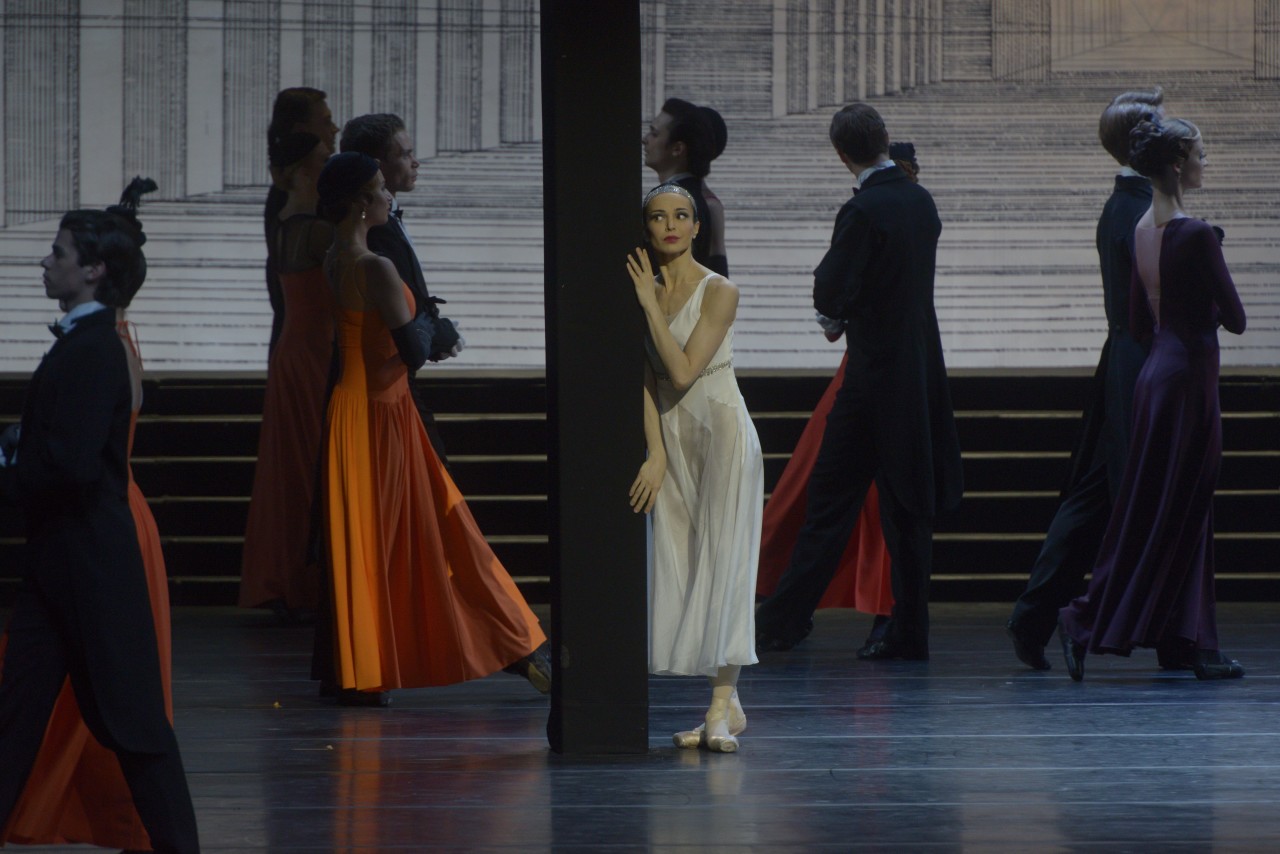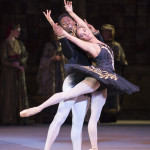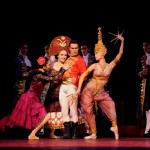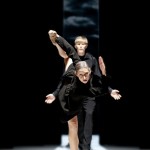Leigh Donlan reported from Zellerbach Hall in Berkeley:
The Mariinsky Ballet and Orchestra brought Alexei Ratmansky’s curious 2002 version of Cinderella to CalPerformances at Zellerbach Hall last weekend.
This revision of the classic was Ratmansky’s first major commission, and while the narrative was often weak and various artistic choices questionable, the exquisite quality of the dancers’ and musicians’ performances made the three-hour ballet bearable. But those expecting a romantic fairytale story, with strictly classical movement, would be disappointed with this production. Like the two little girls sitting in front of me, around six or seven years old. Neither of them were mesmerized by anything Cinderella did, and they often lost complete interest in her (but they really seemed to like the four male punk-rocker Seasons! This was no fault of Nadezhda Batoeva’s – Sunday’s Cinderella – whose dancing was ravishing. The story simply wasn’t presented in a way that would appeal to very young children who have been raised on the more popular version of the fairy tale. There was no pumpkin, no ballgowns, no sustained classical movement, and every character was deeply flawed, including Cindy, who loses her temper on occasion and adopts the bad behaviors of her stepsisters. So, while Ratmansky is busy paving his way into the hearts of a more sophisticated audience with his refiguring of the classics, there are still some who may not yet understand or appreciate his happy-ish-ever-after tales.
But I was extremely grateful for the artists, who are extraordinary, direct descendants of a rich Russian tradition dating back over two centuries. It appeared as if any one of the dancers could have stepped into the roles of Cinderella or the Prince – they are all supremely talented. And the Mariinsky Orchestra, conducted by Gavriel Heine, relayed the intensity and jubilance of the Prokofiev score with absolute clarity.
Batoeva was convincing as the title character, vulnerably sensitive and kind. So when the slick Prince (Vladimir Shklyarov) appeared at the ball, hanging on women and frequently admiring his own reflection, I wondered why the pure-hearted Cindy would fall for such an ass. But the transformative powers of dance worked their magic during the couple’s gorgeous pas de deux, and by the end of Act II, he was showing some princely integrity and was back in the audience’s good standing.
Cindy’s stepmother (Anastasia Petushkova) was an irresistible force throughout the production; with cropped orange hair and endless legs, she resembled a neurotic drag queen. And the Four Seasons helped weave the choppy storyline together during their wildly impressive interludes. So did Cindy’s fairy godmother, or, in this reimagining, the “Fairy Tramp” (Elena Bazhenova), a homeless beggar whose character, if more developed, could have had a deeper impact on the story. She was the wise woman who knew all, but her choreography did not convince us of this. She loped about the stage and could easily have been dismissed as a crazy lady. But it was she who convinced me not to give up on the wayward prince, who inappropriately decided to stop off in brothels during his search for the foot that fit the missing slipper (which he was casually carrying around in a fanny pack.) While I just couldn’t believe that Cindy would be pining away for this guy, as she returned to scrubbing toilets after the ball, the Fairy Tramp remained unfazed by the Prince’s choices, as if everything was unfolding exactly as it should.
And she was right! Love won in the end, and I was glad I resisted the urge to throw a pointe shoe at Cindy’s forehead and scream “Run, Cindy! Run!” The Prince eventually finds his way back to her, and climbs up a fire-escape sort of balcony to seal their fate with a kiss. There is a finale of sorts, in which Cindy’s drunkard father returns from a binge, and blindly stumbles into his future son-in-law, who gives him enough money for binges ever after. Why, Prince? Stop enabling the guy!
The final interesting Ratmansky touch of realism was Cindy’s transition into her new life as a Princess. She doesn’t seem to know how to leave her old self behind, scrubbing invisible dishes and looking at the prince as if she doubts her good fortune. And he too displays some doubts of his own, his once smooth movements turning nervous and twitchy. Is he ready to leave the brothels behind? Is Cindy really “the one”? What if true love is a big lie? Both of them seem somewhat naive, but they soothe each other long enough to lay together beneath the stars as the curtain closes.

